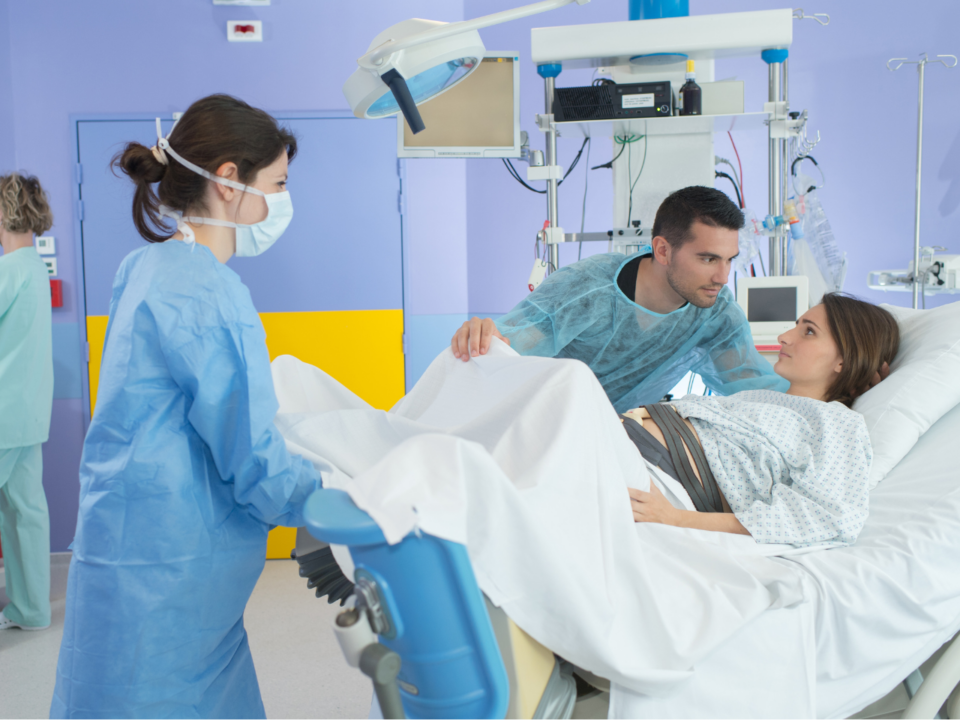Childbirth has got to be, hands-down, the most challenging, painful experience a woman may endure– and we’ve been doing it for centuries! Most parents come up with a birth plan ahead of their new bundle of joy’s arrival, and whether they arrive via cesarean section (c-section), vaginally, in a hospital, in the water, or at home, that’s completely up to mom. It’s also completely up to mom whether she wants to receive pain meds (more specifically, an epidural) during labor or go au naturale.
Did you know the earliest use of pain relief during labor and delivery dates all the way back to the 19th century? Chloroform became popular after being used during Queen Victoria’s childbirths, and WhatToExpect.com shows how it evolved from there. It explains how the early 1900s saw increased use of other drugs to relieve pain. As the 20th century progressed, several feminist movements swept through and paved the way for today’s labor and delivery methods and practices.
Amid these diverse childbirth options, a flourishing movement exists now toward embracing the natural, unmedicated birthing experience. Shanika Valcour-LeDuff, a family nurse practitioner and doula at Labor & Love in New Orleans, is here to shed light on the essence of this transformative journey. At Labor & Love, Valcour-LeDuff facilitates a holistic approach to childbirth, emphasizing mental preparedness, physical support, and trust in the body’s innate abilities. Her insights illuminate the profound beauty inherent in every birth, regardless of the chosen path.
Choosing the Natural Path
Natural birth typically refers to having a vaginal birth without pain medication or routine medical interventions. According to Valcour LeDuff, although this approach may involve discomfort and pain, women who opt for it often feel a sense of strength and fulfillment with the proper preparation and support. Women opt for unmedicated childbirth for myriad reasons, including faster recovery times and a better sense of connection with the birthing process.
“I always tell moms, you only have to get through that moment of intensity [contractions], and then we have our break,” she explains. “During that break, we regroup, and we figure out our next steps. So, whatever positions you want to use to be comfortable, breathing techniques, aromatherapy, massage, anything that’s going to help get you through.”
Another perk for mothers who choose to forego epidurals is the postpartum recovery time. Valcour-LeDuff explains that most women who deliver unmedicated feel immediately better after the baby is out. Your body still needs time to heal though; you can just get started faster and truly embrace motherhood without delay.
Natural childbirth is not a limited method, meaning any woman can do it. Sometimes, childbirth happens so fast that it can happen anytime, anywhere, even if it’s not what the mother had originally planned. In the end, Valcour-LeDuff says, “There’s no right or wrong way to do it.”
How to Prepare
Laboring without an epidural demands mental fortitude and a robust support system. Perhaps the most important thing is being mentally prepared to navigate the physical and emotional intensity of childbirth. Doulas, nurses, partners, and family members form the cornerstone of this support network, offering comfort, encouragement, and guidance throughout the process. Valcour-LeDuff emphasizes that contractions, while intense, are transient, so remember you will have moments of respite in between. This is where you will really start to lean on those around you.
As with all childbirth methods, preparation classes (like those offered at Labor & Love, other birthing centers, and hospitals) are extremely informative and helpful for both mom and her partner.
Many birth centers and hospitals will offer group classes for families and couples, as well as hands-on technique classes to prepare you for the entire labor and delivery process. Researching and meeting with a midwife or doula is also a wise decision, so you’re guaranteed a partner who will continue to educate and support you throughout your birthing experience.
Of course, if you have a home birth, that will be unmedicated. But hospitals and birthing centers will also give you the option to go the natural route if that’s what you choose.
You Got This, Mama!
Valcour-LeDuff has met a lot of patients who believed natural childbirth was something they couldn’t do. “They want an unmedicated birth, and their family or friends who have had babies before scare them and put that fear into them,” she explains. You have to trust yourself and trust that your body is doing what it was created to do. You can always change your mind too. “You are in control,” assures Valcour-LeDuff. “The only time you cannot get the epidural is if the baby is coming out.”
Remember, all births are beautiful. Regardless of the chosen path, the journey through childbirth is a testament to the strength, resilience, and beauty of the human body. With each birth, a new chapter unfolds, filled with love, joy, and the promise of new beginnings.

